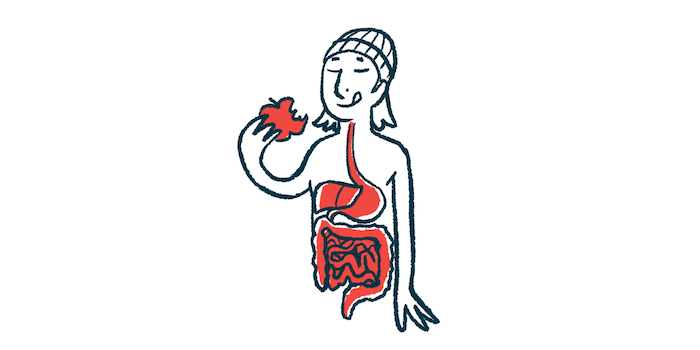LOPD patients with difficulty swallowing need support: Study
Swallowing problems can have big impact on patient quality of life
Written by |

Difficulty swallowing is a common problem for adults with late-onset Pompe disease (LOPD) and can have a sizeable impact on their quality of life, yet most of these patients aren’t receiving specialty care to address this issue, according to a recent study.
Researchers noted that clinicians caring for LOPD patients should be aware and look for this common symptom and offer support when needed.
“Recognizing these symptoms can enable multidisciplinary care with a speech therapist, dietitian, and ear, nose, and throat specialist if needed,” researchers wrote.
The study, “Bulbar muscle impairment in patients with late onset Pompe disease: Insight from the French Pompe registry,” was published in the European Journal of Neurology.
Progressive muscle weakness in Pompe can lead to difficulty swallowing
The main symptom of Pompe disease is progressive muscle weakness. When weakness affects bulbar muscles, that is, the tongue and other muscles around the mouth, throat, and neck, it can cause difficulty swallowing food and water.
A team of scientists set out to evaluate how common swallowing problems are in LOPD and how these problems may affect patients’ quality of life.
“Although tongue involvement is a clearly established sign of LOPD, leading to significant swallowing impairment in some patients, the prevalence and clinical impact of this manifestation has not yet been studied extensively in the population of LOPD patients,” the researchers wrote.
The study included data on 100 adults with LOPD (58 women and 42 men, with a mean age of 56.1 years) who had been followed at 17 hospitals in France from January to October 2023 and included in the French national Pompe disease registry.
All completed standardized questionnaires about swallowing difficulties, as well as clinical assessments to evaluate their swallowing ability.
1 in 3 patients reported problems with swallowing
Results showed about 1 in 3 patients (32%) reported problems with swallowing. These issues were mild in most cases, but some patients had severe problems swallowing, including one individual who was able to feed only via a feeding tube.
One in 5 patients (20%) reported difficulty swallowing that affected them every day, and a similar proportion (18%) said they had experienced aspiration, or swallowing food that accidentally enters the airways, which can set the stage for life-threatening problems, such as choking or pneumonia.
Several patients said swallowing problems contributed to mental health issues, including depression, and nearly 1 in 10 said they no longer ate out at restaurants due to fears related to swallowing problems.
“The main finding of our study through this cohort representing LOPD patients is the high frequency of bulbar muscle impairment in this population, with 32% of patients complaining of swallowing difficulties,” the researchers wrote.
Statistical analyses showed patients who experienced swallowing difficulties had generally been living with Pompe symptoms for longer than those who had no problems swallowing. Patients with swallowing difficulties also tended to have a lower body mass index (a ratio of weight to height that’s often used as a measure of body fat), implying that difficulty swallowing could cause patients to have problems ingesting enough nutrients in their diet to maintain a healthy body weight.
These difficulties are often undervalued and thus undertreated.
Macroglossia (an unusually large tongue) and speech impairments were both features that were also more commonly seen in patients with swallowing difficulties.
When people are experiencing swallowing difficulties, speech therapy can be an invaluable aid. Yet, even though swallowing problems were common among LOPD patients, only four individuals reported receiving care from a speech therapist.
“This underlines that these difficulties are often undervalued and thus undertreated,” the researchers wrote. Since swallowing problems can substantially affect quality of life and set the stage for major health problems like pneumonia and malnutrition, patients experiencing this common symptom should be offered appropriate support by clinicians, the team noted.



